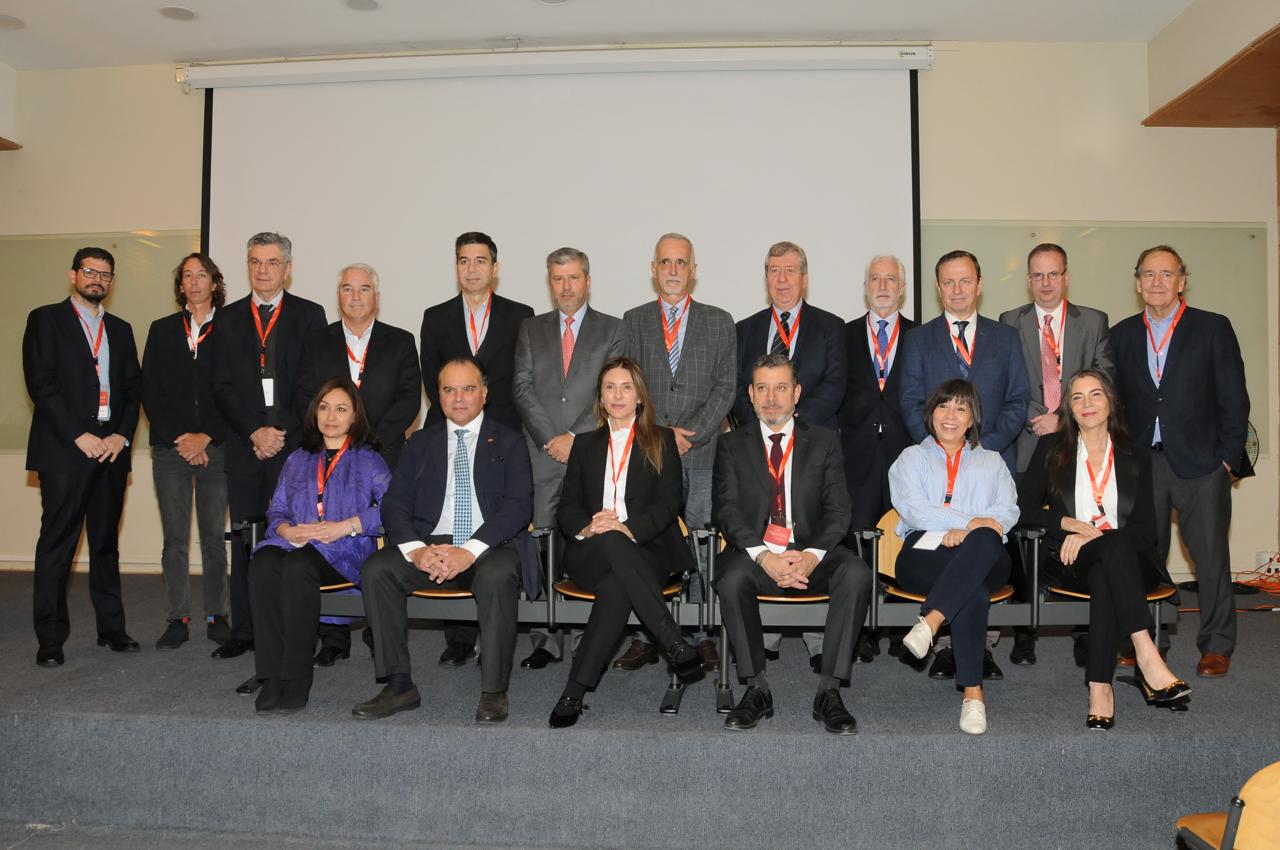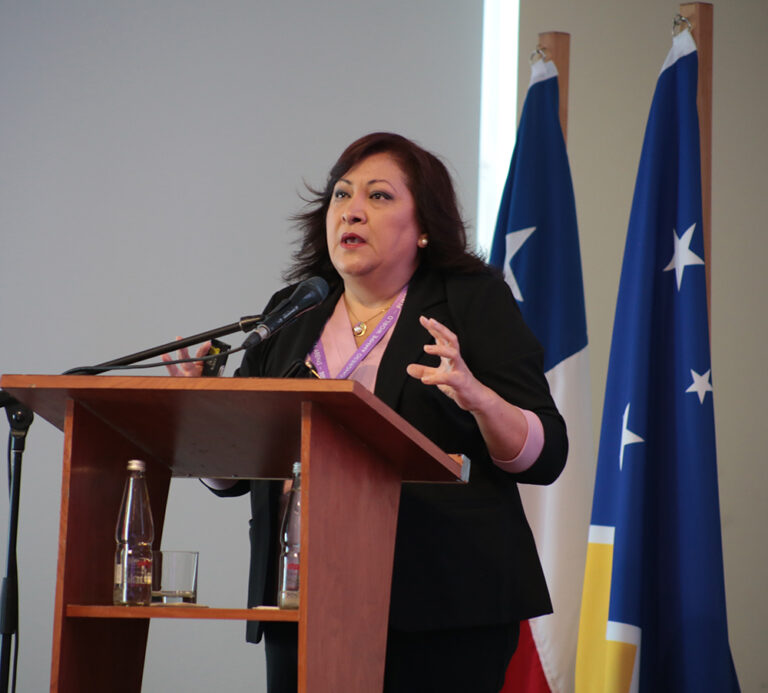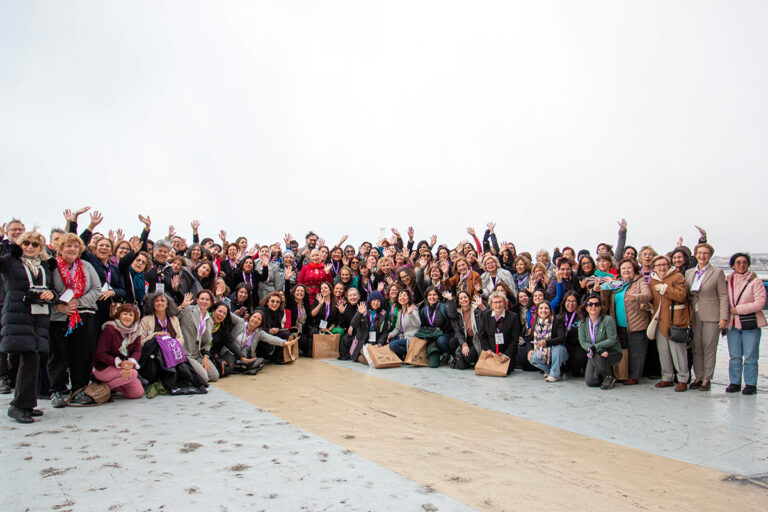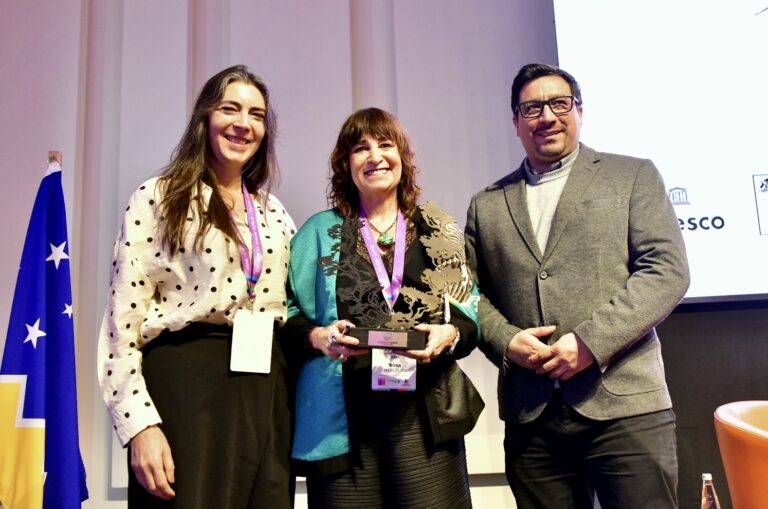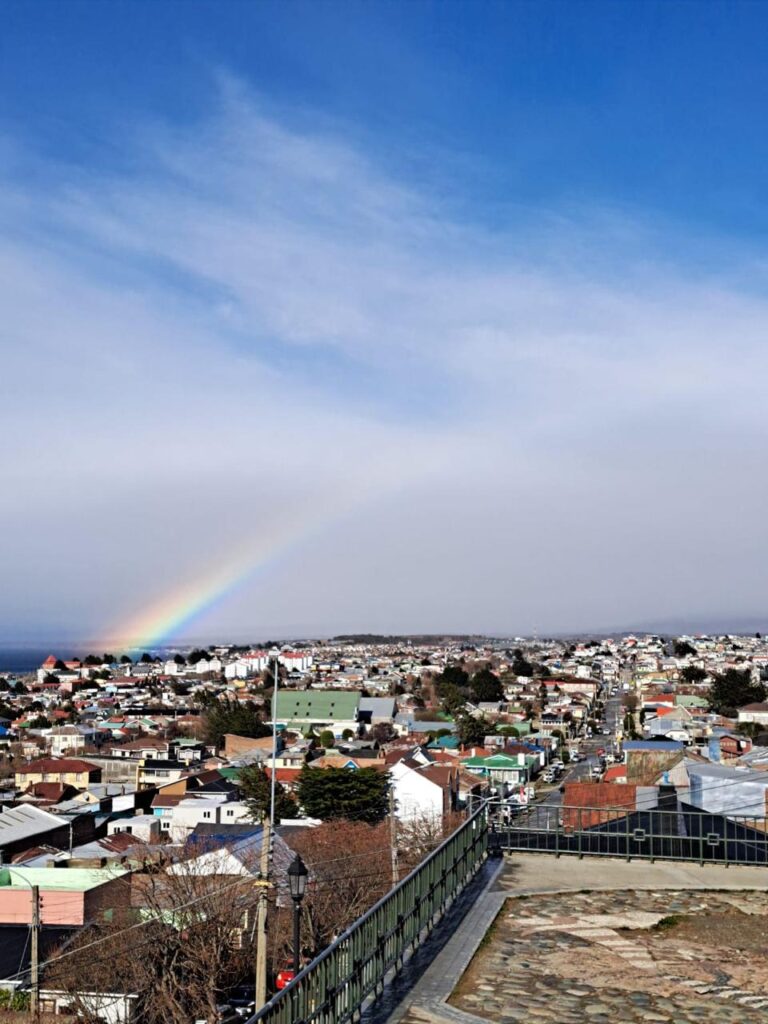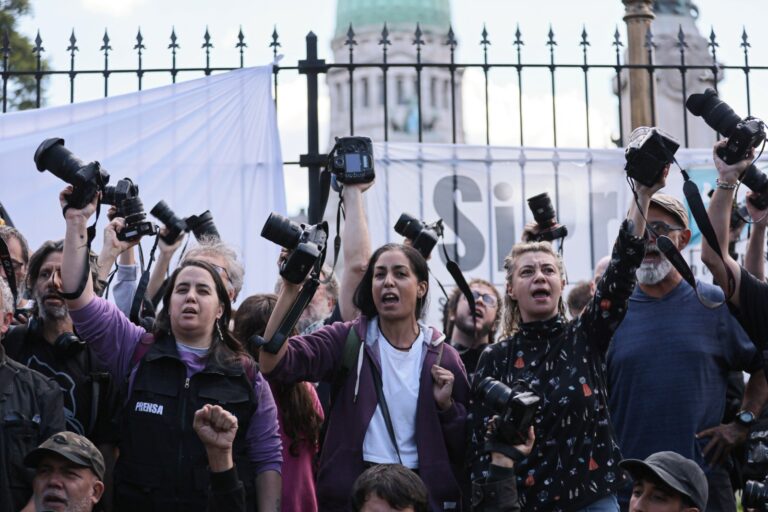“Santiago + 30 Declaration”, commitment to a free press and democracy
International and national organizations advocating for press freedom signed the “Santiago + 30 Declaration” in this city. The statement addresses new political, social, and technological challenges faced by journalism worldwide.
The Worldwide Association of Women Journalists and Writers was part of this event, being represented by its president Elia Simeone.
Among the signatory entities are the Inter American Press Association (IAPA), the World Association of News Publishers (WAN-IFRA), the Committee to Protect Journalists (CPJ), as well as national media associations in nine countries in Latin America and Europe, including Spain, Portugal, Argentina, Chile, Brazil, Colombia, Mexico, Peru, and Ecuador.
Gathered at a meeting organized by the National Press Association at the Catholic University of Chile, journalistic entities propose a fresh perspective on the “Santiago Declaration” published in 1994 in the Chilean capital under the auspices of UNESCO. The aim is to reaffirm the “commitment to a free press, vibrant public discourse, and the flourishing of democratic societies in Ibero-America and the Caribbean.”
The “Santiago + 30 Declaration” emerges within the context of a meeting convened again by UNESCO in this city to celebrate World Press Freedom Day. In 1994, it was held under the theme “Media Development and Democracy in Latin America and the Caribbean," and this time the meeting's focus is " Journalism in the face of the environmental crisis.”
Journalistic associations contribute to the debate on our freedoms, democracy, and the sustainability of the journalistic industry. This was also the case in 2021 with the “Windhoek Declaration + 30,” a document addressing the challenges of digital media transformation – in Africa in that instance – and the impact of major technology companies and social networks on freedom of expression.
The content of the “Santiago + 30 Declaration” was presented during the cycle of conferences organized by UNESCO, in particular during the panel entitled “Perspectives for updating the Santiago Declaration for the new era”, scheduled for Friday, May 3, at the Gabriela Mistral Cultural Center in Chile. The panel was attended by WAN-IFRA President Fernando De Yarza López-Madrazo and IAPA President Roberto Rock.
La “The fact that the congress is being held in Magallanes has a very powerful symbolism. For the first time, we are saying that the regions are important, that the voices of women who work from remote places also count. This type of event not only makes our reality visible, but also creates spaces for exchange with colleagues from all over the world, which is fundamental to strengthen networks. Conversations are taking place here that can change the course of the industry towards a more diverse and inclusive one, where we are not the ones who have to adapt to the centers, but rather that the centers recognize the value of the regions”.The "Santiago + 30 Declaration" urges States, intergovernmental organizations, technology companies, media outlets, and journalism in general to undertake "a collaborative effort" to consolidate "freedom of expression as a fundamental human right and cornerstone of informed and democratic societies."
Among its highlights, the document calls on States to avoid narratives of political polarization; protect journalists; ensure the free flow of information and access to public information; support the sustainability of independent journalism; and encourage balanced negotiation conditions between media outlets and technological companies for content distribution.
It also calls on intergovernmental organizations to promote public policies in favor of a plural and independent press, encourage the creation of media outlets in rural areas, and promote public campaigns for media and digital literacy.
To technology companies, it urges transparency in content moderation policies; combating disinformation; respecting copyright and intellectual property laws; exploring new sustainable business models for all parties, ensuring fair compensation for news content they distribute, and observing competition principles in the advertising ecosystem.
Media outlets and journalism are urged to resist censorship, self-censorship, and undue influence; uphold principles of quality and transparency; create safety protocols for their personnel, and strengthen their gender, racial, and diversity inclusion policies. They are also encouraged to explore new business models and tools for greater sustainability.
